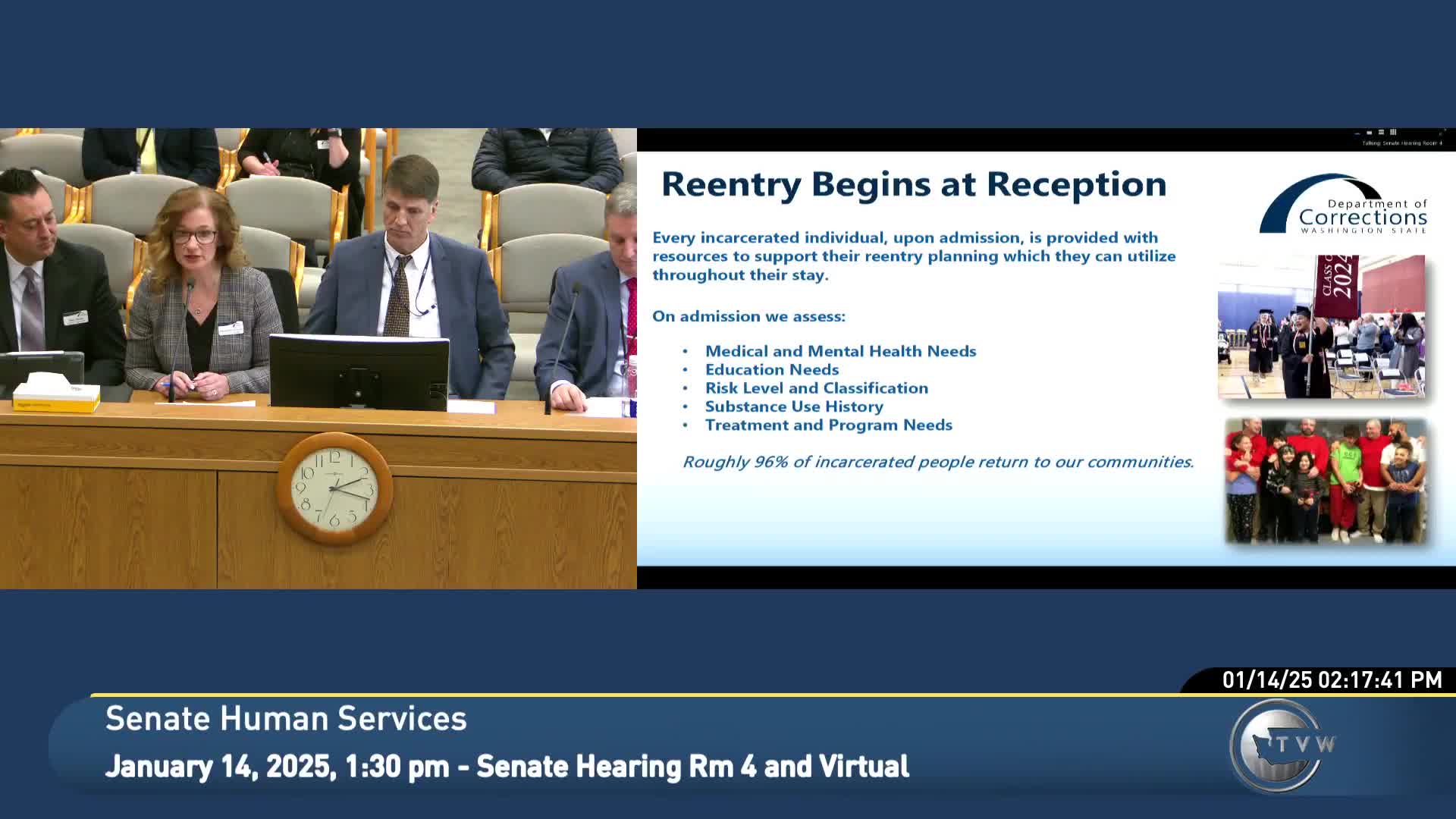Bill would remove $100 cap on DOC release transportation, allow coordination with non‑profits

Summary
Senate Bill 5029 would remove a statutory requirement that the Department of Corrections provide the least‑expensive public transportation at release (capped at $100) and require DOC to coordinate timing with nonprofit partners when those partners support reentry. DOC and reentry providers testified in support.
Senate Bill 5029, sponsored by Sen. Claire Wilson, would change state law that currently requires the Department of Corrections (DOC) to provide released people with transportation by the least‑expensive method of public transit not to exceed $100. The Human Services Committee heard a staff briefing and several supportive witnesses.
Kelsey Ann, committee staff, summarized current law and practice: historically DOC must provide suitable clothing, at least $40 in "gate money," and transportation by the least expensive public transit method not to exceed $100 unless the superintendent finds the person has funds. "Under the bill before you, the requirement that the public transportation provided by DOC at a person's release or discharge be the least expensive method not to exceed $100 is removed," Ann said, and the change would require DOC to make "every effort to coordinate the timing of the individual's release ... with a partnering nonprofit organization that will support the individual's reentry."
DOC and community providers urged the change as a humane and practical step. Danielle Armbruster, DOC assistant secretary for reentry, told senators the initial 72 hours after release are critical and that cheap, indirect transit can create barriers to meeting supervision requirements or reaching housing or treatment appointments. "Transportation upon release is critical yet often overlooked," Armbruster said. Jacob Ivan Schmidt, director of Just Us Solutions and a person with lived experience, said reentry is often experienced as acute fear and that simple reductions in stress — including coordinated, reliable transport — increase chances of successful return to the community.
Current usage and fiscal questions Committee staff later provided a fiscal data point: in fiscal year 2024, DOC released 5,029 individuals and provided $90,559 in gate money under the then‑existing rules. The bill's fiscal note described indeterminate costs but assumed less than $50,000 per fiscal year; DOC and advocates said exact costs depend on how DOC structures coordination with nonprofit partners and whether DOC purchases rides by ride‑share, agency‑contracted transport, or other methods.
What the committee heard - Sponsor: Sen. Claire Wilson framed the change as updating a 1971 limit that has not kept pace with transportation costs and public‑transit availability in a large and largely rural state. - DOC: Danielle Armbruster supported the bill, called for clear language and coordination with reentry partners, and said the department had a minor suggested revision to the bill. - Community testimony: Jacob Ivan Schmidt (Just Us Solutions) and remote witnesses from advocacy and legal organizations supported the measure as an evidence‑based step to reduce immediate post‑release risk.
No committee vote was taken during the hearing; proponents said they would work with committee staff on drafting and cost clarifications.
Ending Sponsors and witnesses said they would provide requested follow‑up data to the committee and work on clarifying bill language about coordination and allowable transportation methods.

